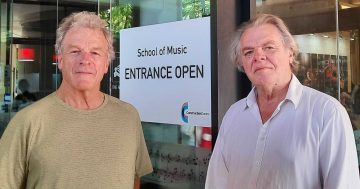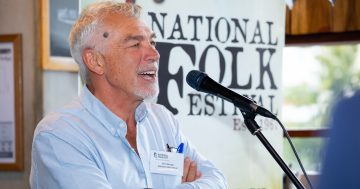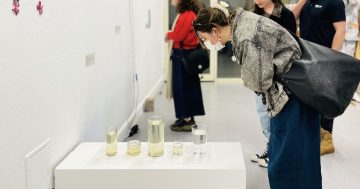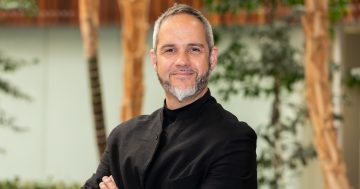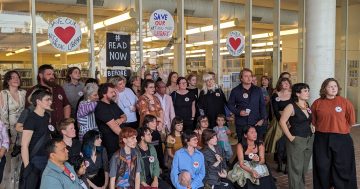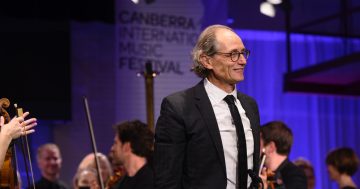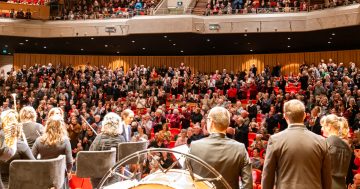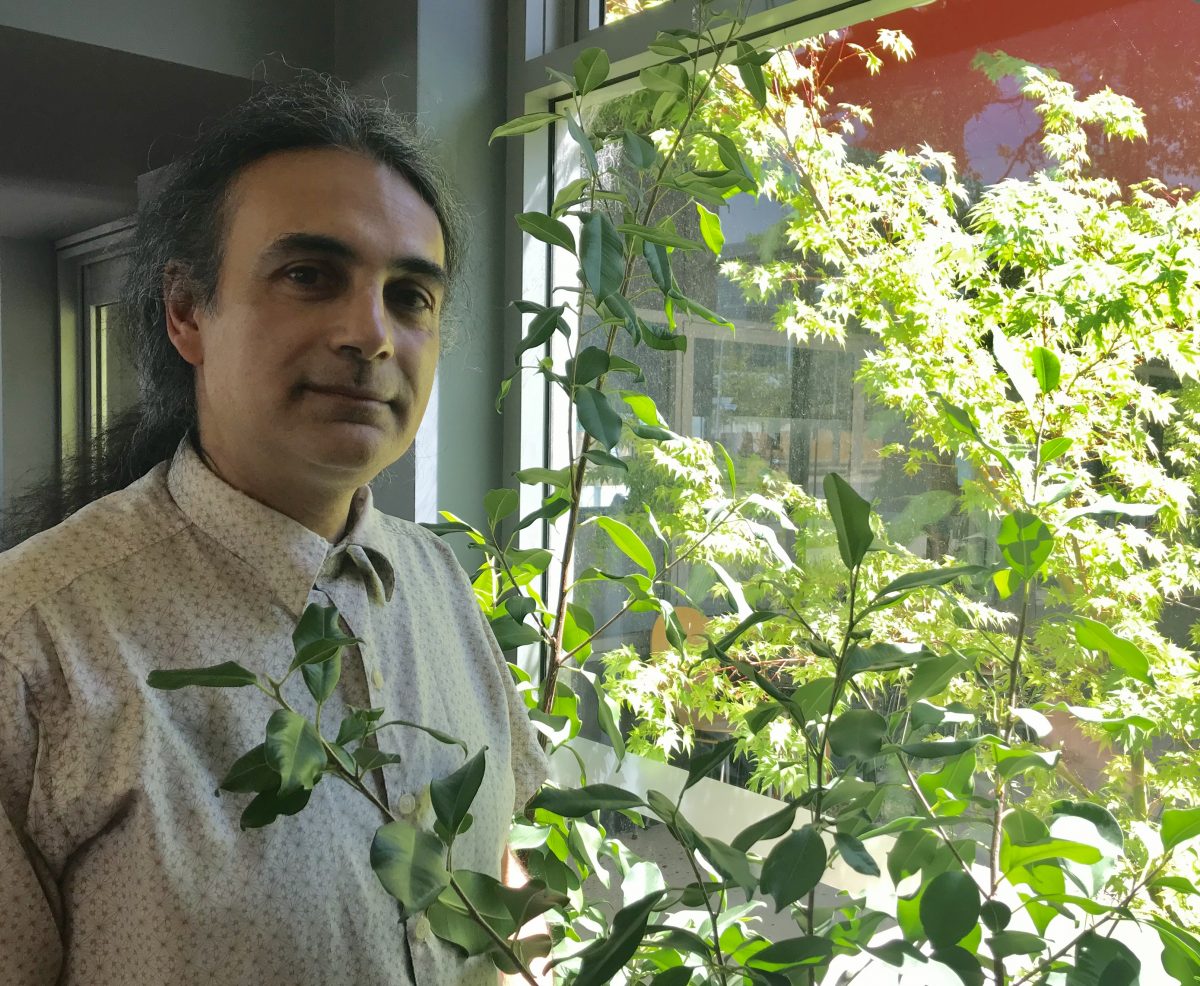
Professor Kim Cunio’s term has ended as head of the ANU’s School of Music. Photo: G Jacobs.
It’s hard to think of a better career achievement than fixing something that was broken and had hurt many people, but that’s what Professor Kim Cunio has achieved as he steps down from the ANU School of Music.
When his term began, the school was still badly bruised from sweeping cuts inflicted in 2012 as subsequent heads of the school had attempted to fix the damage after a major restructure spilled all the academic and general staff positions, creating widespread distress.
Student numbers slumped, PhD candidates dwindled to almost nothing and the pipeline of students for orchestral positions, music ensembles and other performing careers in Canberra evaporated.
Today, says Professor Cunio, “everything has become stable again. The students are happy, so are staff; we have the support of the community and have raised a lot of money”.
“It became clear the community needed the school but the school also needed the community to continue what it used to do. Students needed a pathway to work professionally; otherwise, there was no reason to stay in Canberra after you graduated.
“I realised in some ways it was a very simple process because there was still so much goodwill towards the school. Community leaders were just waiting for the school to come back.”
Under Professor Cunio’s leadership, the school’s identity has changed significantly. There are now hundreds of students and around 30 PhD candidates.
Excellence in classical performance remains a key priority, but there’s an increased focus on double degrees and flexibility, a re-launched ANU student orchestra, and a suite of partnerships with the Canberra Symphony Orchestra, Canberra International Music Festival, the Folk Festival and Music for Canberra.
“Canberra’s music community has realised that we’re stronger together and can achieve more. Big things become possible when we share our resources,” he says.
“One of the biggest changes is School of Music graduates and students want to be part of their society. Now 60 per cent have double degrees and work in music and the community.”
Before the 2012 cuts, the school focused on producing elite musicians and composers. Professor Cunio says while that’s still a major part of its role, double degrees enable musicians to create two careers – inside and outside the music world. He describes this as “a truly radical notion” that enables more musicians to buy houses, raise children and survive comfortably in Canberra.
The School of Music has also focussed strongly on working with First Nations musicians, launching the Yil Lull recording studio and employing the highest percentage of Aboriginal and Torres Strait Islander staff across the ANU.
The Yil Lull studio offers free recording and music assistance to Indigenous musicians from across Australia. It has three more years of funding through the Ngarra-Burria: First Peoples Composers program.
The successful community outreach has been bolstered by an external review Professor Cunio describes as “overwhelmingly positive”, with many developmental opportunities as a result.
Professor Cunio will spend a year on sabbatical focussed on his work as a composer before returning to teach at the ANU in 2025.
He has a three-month residency with the British Antarctic Survey, continuing a longstanding project recording the deep sounds of the earth. He and his wife Heather will also begin new recordings of Hildegard of Bingen’s music, made outdoors in the area where she lived.
“It’s been a delight to have the chance to lead the school for five years and have the university and community place their trust in me,” he says.












